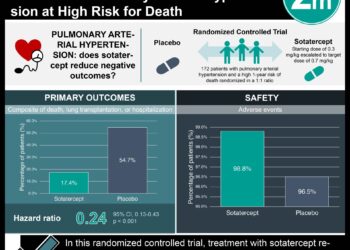#VisualAbstract: Polypill for Cardiovascular Disease Prevention in an Underserved Population
1. In this randomized, controlled trial, patients without cardiovascular disease randomized to receive a polypill containing atorvastatin, amlodipine, losartan, and hydrochlorothiazide experienced greater reductions in systolic blood pressure and low-density lipoprotein (LDL) cholesterol over 12 months compared to patients who received usual-care.
2. Polypill patients reported increased rates of myalgia, hypotension, and lightheadedness.
Evidence Rating Level: 1 (Excellent)
Study Rundown: Disadvantaged patients, including those with low socioeconomic status and minority populations, experience high rates of cardiovascular disease. Polypill-based therapy has not been well-studied in these underserved populations. This trial evaluated two primary endpoints: change in systolic blood pressure and change in LDL cholesterol. Compared to patients treated with usual care, patients on polypill therapy experienced greater decreases in both systolic blood pressure and in LDL cholesterol over 12 months of follow-up. Secondary endpoints, including change in diastolic blood pressure and total cholesterol, were also found to have greater decreases in polypill patients compared to usual-care patients. Compared to the usual-care group, the polypill group experienced higher rates of myalgia, hypotension, and lightheadedness.
This randomized, controlled trial provides evidence that polypill therapy may improve cardiovascular outcomes in underserved patients. Limitations include the study’s open-label design and selection of participants from one community health center.
Click to read the study in NEJM
©2019 2 Minute Medicine, Inc. All rights reserved. No works may be reproduced without expressed written consent from 2 Minute Medicine, Inc. Inquire about licensing here. No article should be construed as medical advice and is not intended as such by the authors or by 2 Minute Medicine, Inc





